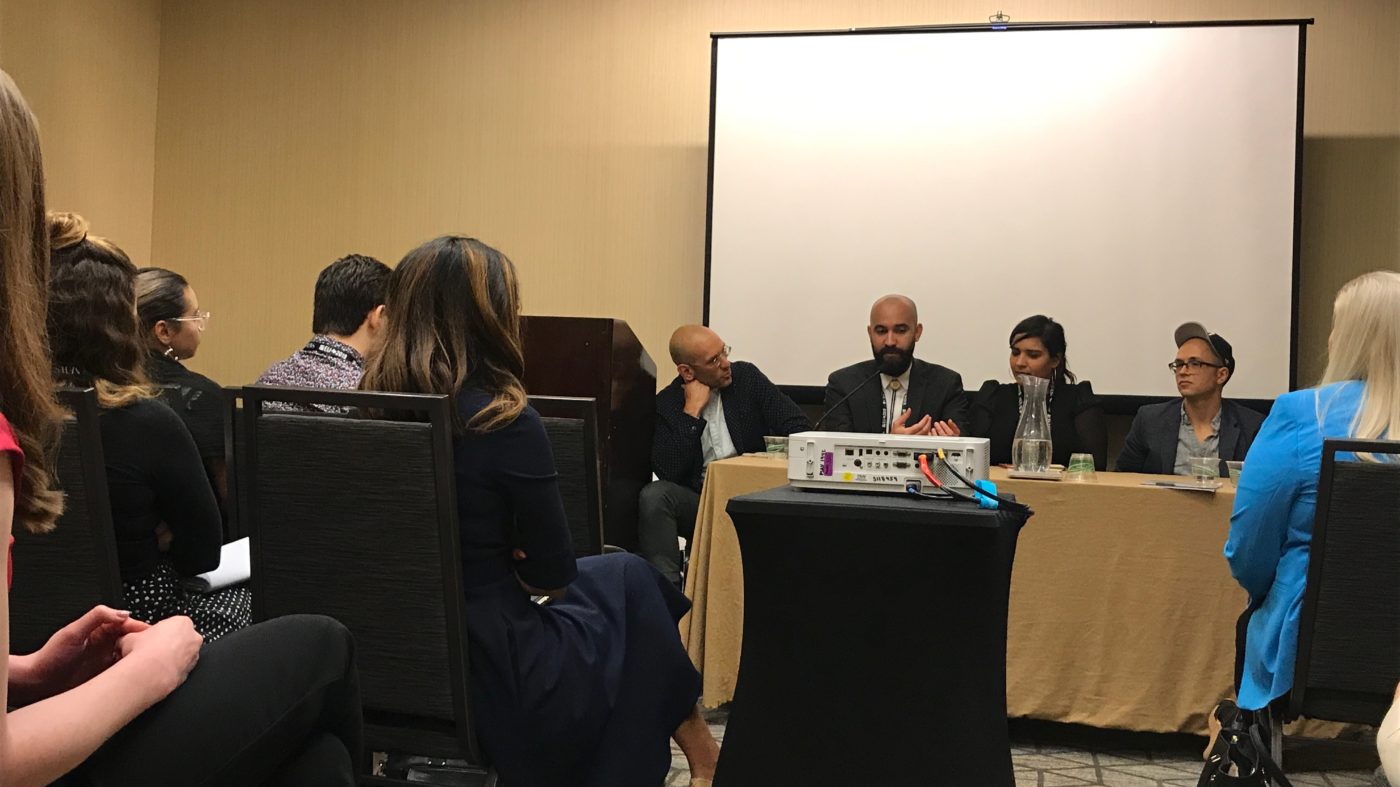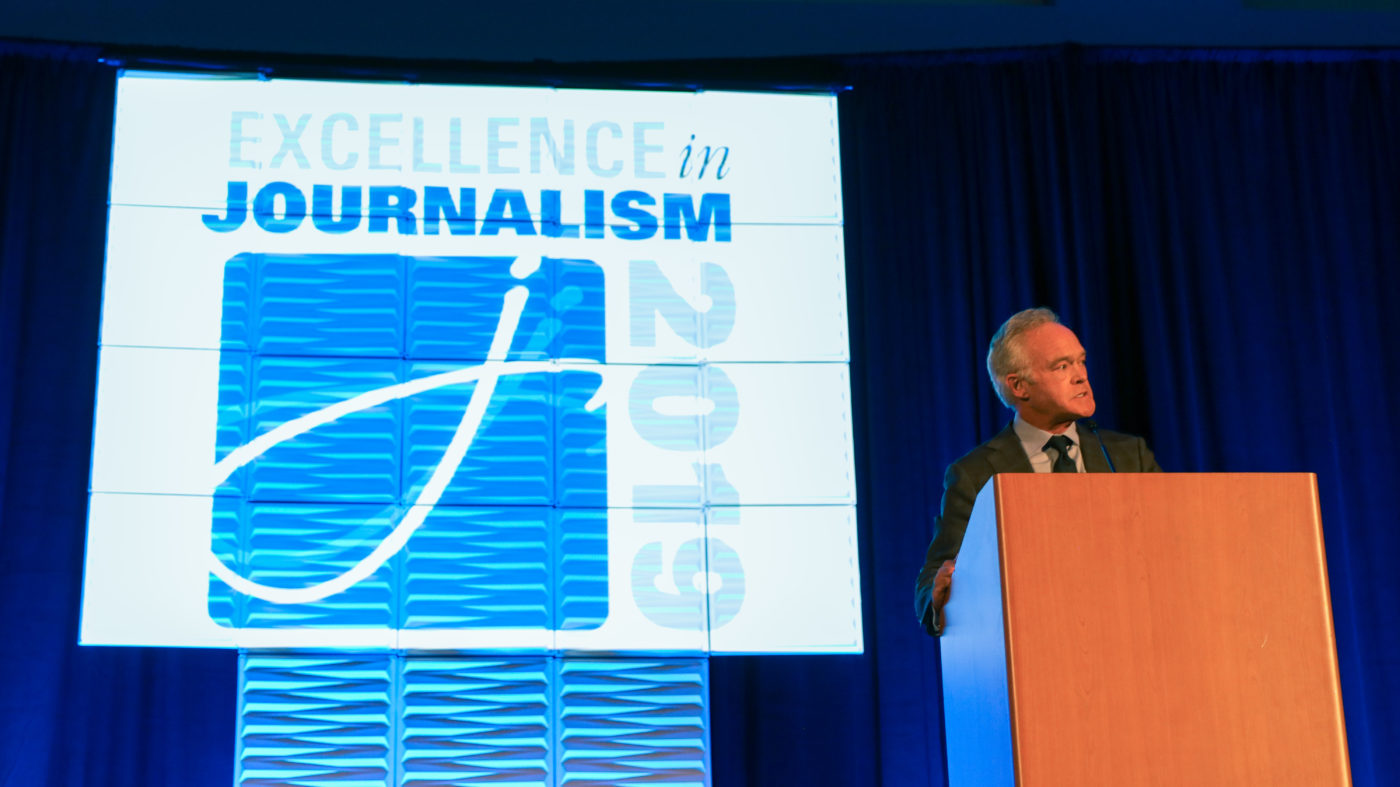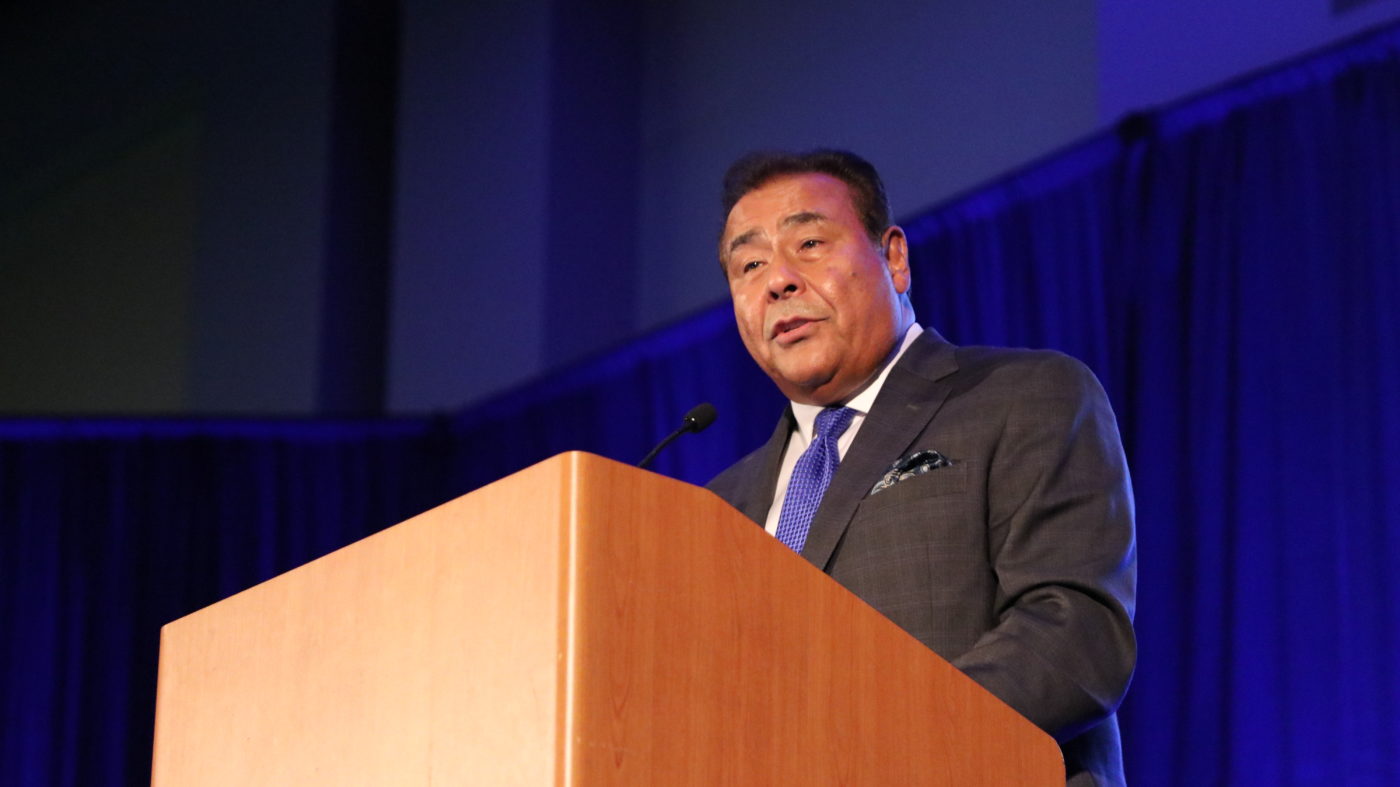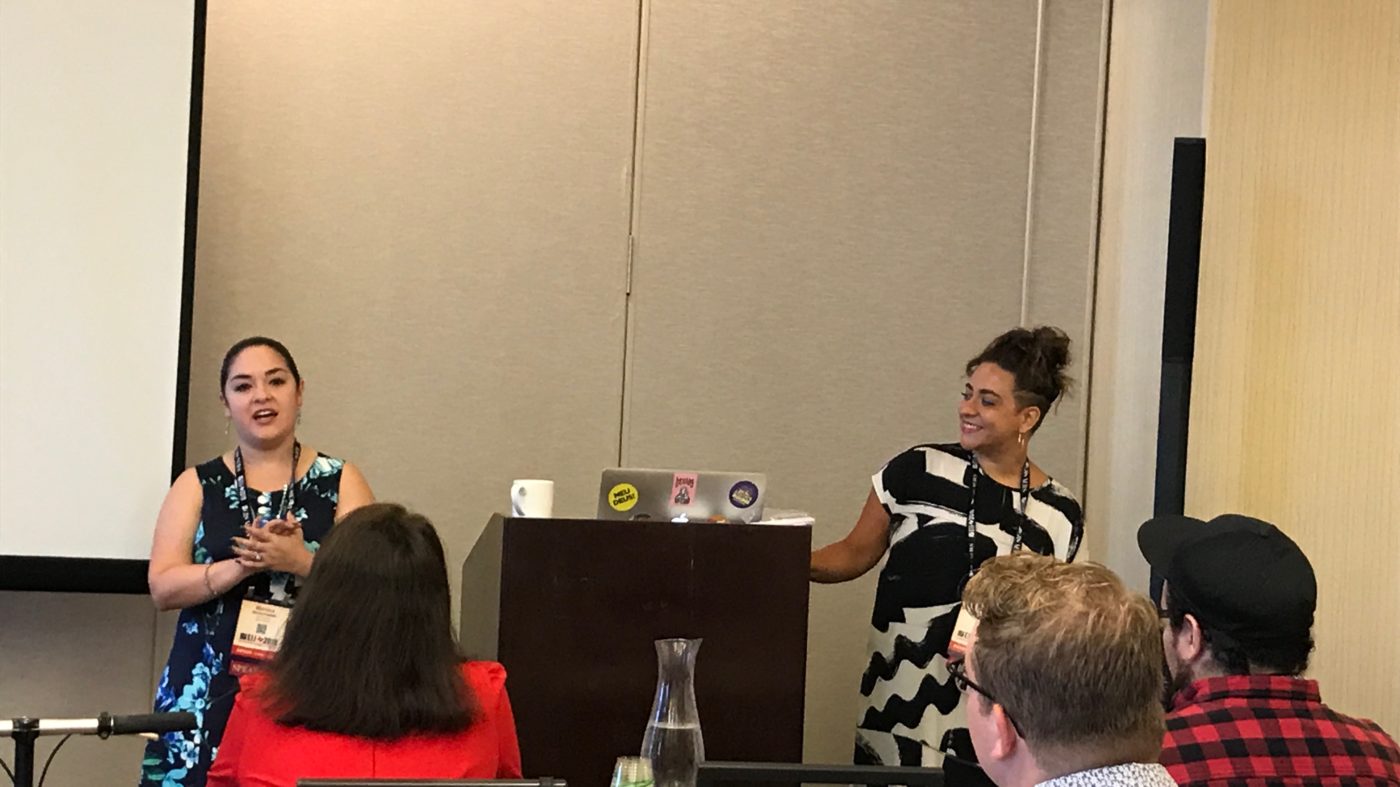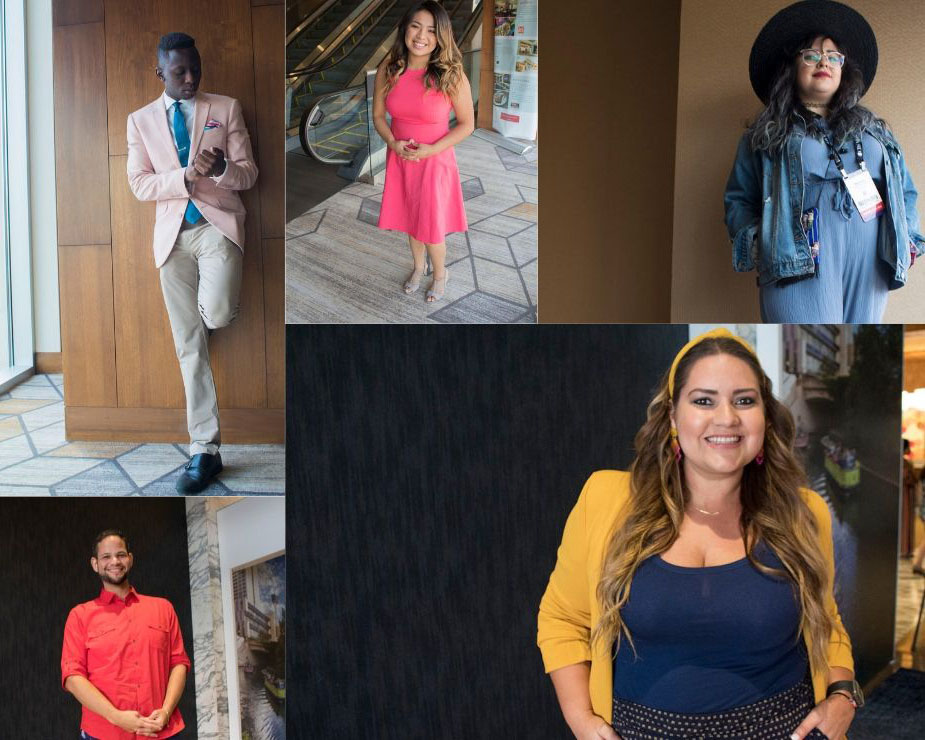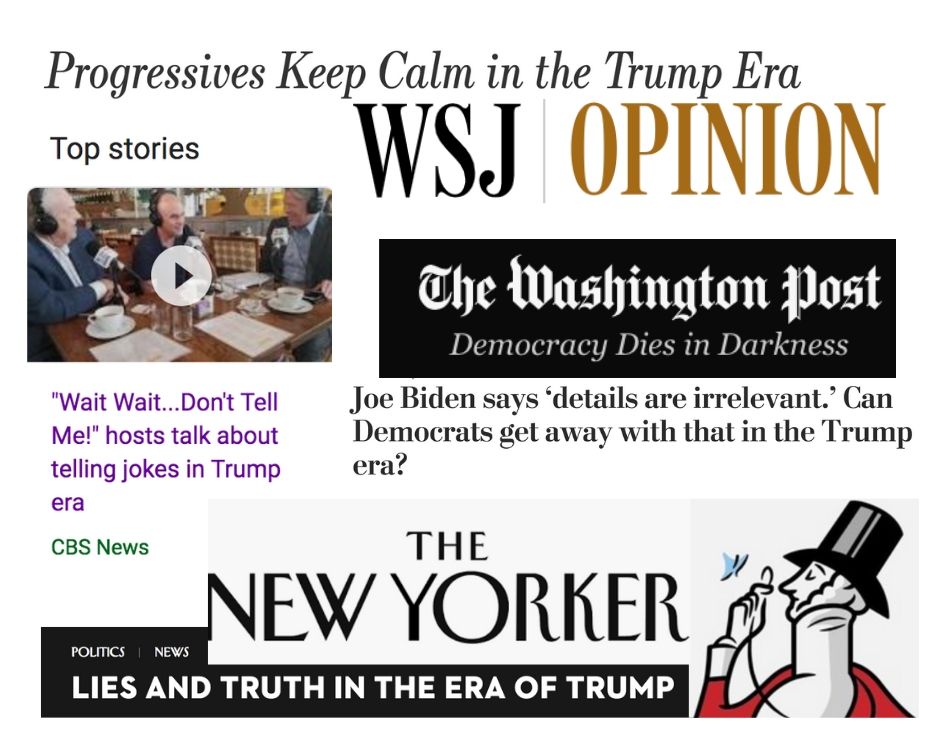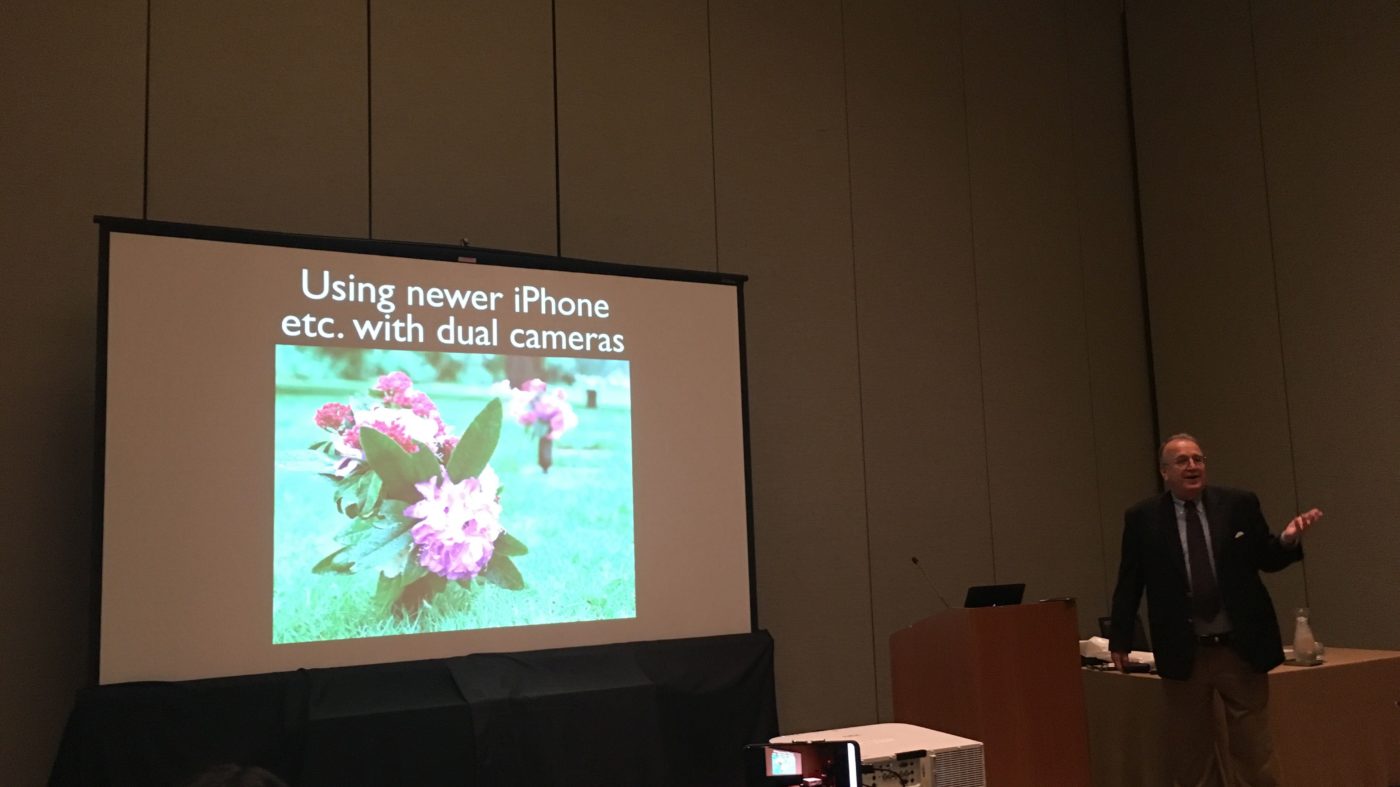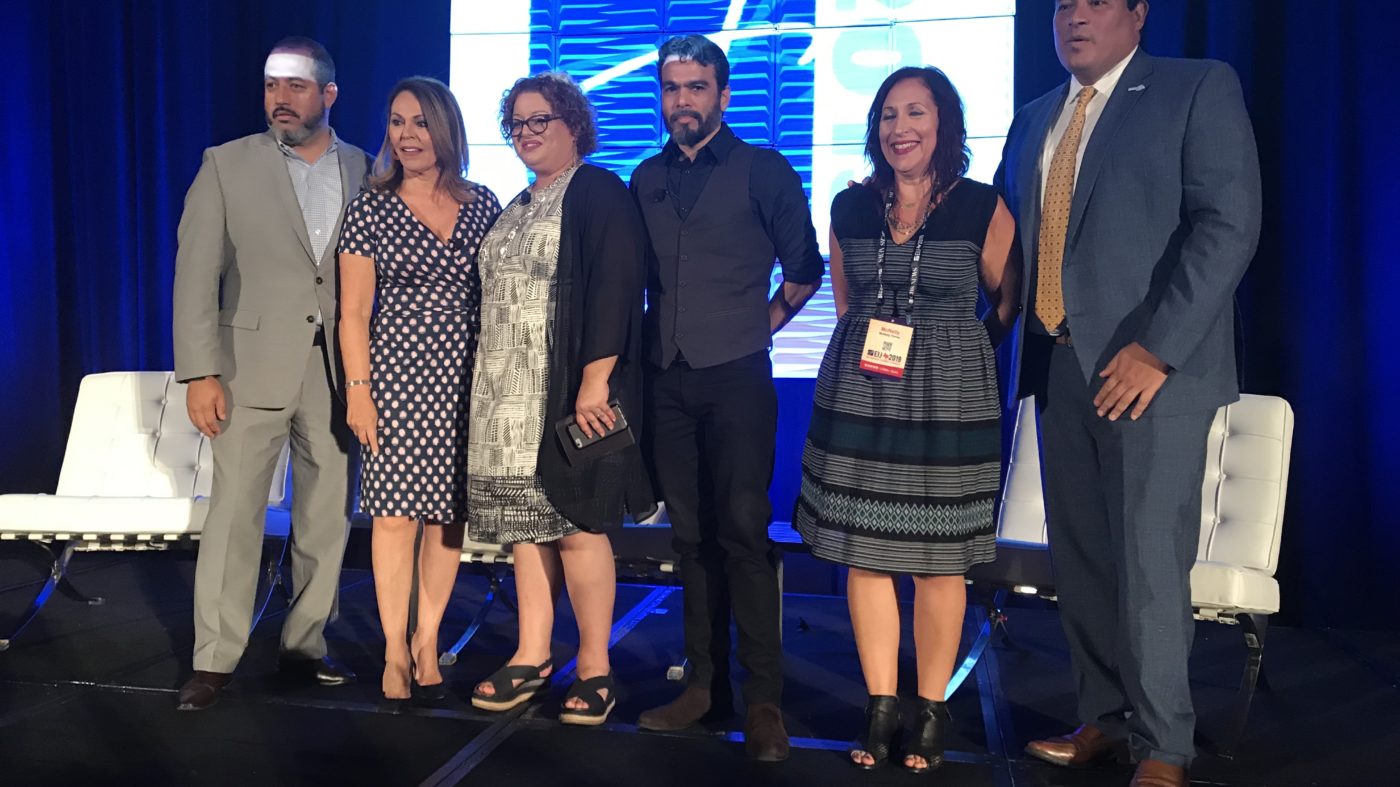The rising trend of extremism challenges reporters, who have the responsibility to continue to report ethically and accurately.
The Atlantic does not hesitate to identify hateful rhetoric.
“Calling something racist is not subjective,” said Swati Sharma, managing editor.
In a session called “Extremism in the Age of Trump,” Sharma and four Atlantic colleagues discussed their decision to label racist comments made by President Donald Trump as such.
Earlier this year, the AP Stylebook changed the guidelines for covering race.
According to Poynter, the guidelines now empower journalists to use the word “racist” to describe words and actions that qualify as such, but caution against calling someone a racist.
Continue reading the "Extremism in the Age of Trump" »
RTDNA announced its Kaleidoscope Award winners Friday, Sept. 6, at EIJ19. The awards honor exemplary work in journalism that discusses race, gender, ethnicity and sexual orientation. The award highlights work that brings diverse voices to the front of the community.
This year, winners included the podcast We Live Here, which tackles systematic racism in St. Louis, Missouri. RTDNA also recognized the ESPN film Crossroads, about the struggles of a lacrosse team from North Carolina.
Three of the recipients collected their awards at the ceremony.
Continue reading the "RTDNA Kaleidoscope Awards Honor Diversity" »
George Bodarky of WFUV and Naomi Starobin of WHYY shared tips to become a better broadcaster. Watch Bodarky’s advice below.
Continue reading the "Sarah Arshani Finds her Inner Broadcaster" »
The first time that Julia Furlan tried freelancing, she only earned $14,000/year, but she gained valuable skills from the experience and has more success freelancing.
Furlan, alongside Monica Castillo, imparted tips for freelancing.
Monica Castillo and Julia Furlan advise attendees on getting started in freelancing at the Excellence in Journalism conference in San Antonio on Sept. 6. (RTDNAPhoto/Sarah Al-Arshani)
Do not work for free, not even in the beginning. Beyond the financial toll, Furlan explained that working for free has an emotional toll.
Continue reading the "15 Tips for Fabulous Freelancing" »
Younger journalists and students are redefining what ‘professional dress’ means. Gone are the days of conservative suits and black pencil skirts. Younger journalists are favoring bright colors and bold silhouettes.
Here are some of the smart looks captured at EIJ19.
Continue reading the "EIJ19: Fashion" »
The Washington Post published an article with the headline, “Joe Biden says ‘details are irrelevant.’ Can Democrats get away with that in the Trump era?”
CBS News did a segment on telling jokes in the Trump era.
The Wall Street Journal wrote an opinion piece on how progressives are keeping calm in the Trump era.
The New Yorker recorded a video on lies and truth in the era of Trump.
All of these pieces have four words in common: in the Trump era.
Continue reading the "Reporting in the ‘Trump Era’" »
It seems like these days everybody has a podcast, but once the show is recorded what’s next? Here are practical tips from EIJ19 panelists on ways to get people to listen to your work.
Social Media
Marketing a podcast on social media might seem obvious, but there are smart (and not so smart) ways to get followers to actually listen. Al Tompkins from the Poynter Institute has cool tools that can help get people to the show.
Headliner is a free app that can be used to make audiograms.
Continue reading the "So you made a podcast. Now what?" »
Journalists at Centro Periodismo Investigativo, CPI, still investigated corruption in former governor Ricardo Roselló’s cabinet. Carla Minet and Oscar Serrano were integral to CPI’s coverage.
CPI’s investigative work in Puerto Rico inspired an organized protest through social media with #RickyRenunciaYa. Demonstrations followed with thousands taking to the streets. Minet said, since the story broke, the non-profit’s funding quadrupled.
Here are three lessons every local journalist should take away from this story, from the CPI newsroom.
Journalists should be careful not to attribute too much power to their work.
Continue reading the "Lessons in Investigative Journalism from Centro Periodismo Investigativo" »

